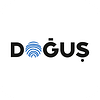Become an agent for change in an Agile environment!
The APMG Agile Change Agent course delivers a practical approach to scope, plan and manage change initiatives, with the emphasis on learning techniques that can be applied to the projects and change initiatives that you are involved in.
Based on the 2nd edition of the successful book “Agile Change Management – a practical framework for successful change planning and implementation” The course leads you through the application of agile planning techniques to create a roadmap that defines what outcomes will be achieved and when these will be implemented. These outcomes are prioritised by the value that they deliver to the business area which is experiencing the change.
During this two-day course you will develop your ability to build trusted, empathetic relationships with those impacted by change, through the application of techniques based on neuroscience and emotional intelligence. The purpose of this training is for you to build your capability, focusing on relevance and usefulness. The course is full of opportunities to 'see, do, learn' so that you gain ability as you practice the content using tools and techniques that you can tailor to your own situation.
During the course you will explore the following core topics:
- Concepts: these bring together agile principles and change management best practice
- Roadmap: a simple, effective agile planning technique for defining how and when work will be completed, and benefits will be realized
- Business Need: a range of techniques to identify the benefits for our change, used to prioritize the work and motivate ourselves and others to adopt the new ways of working
- Relationship Building: designing your engagement with others including what information you share, how you share it and what opportunities you give to others to make change happen
- Environment: techniques to create an atmosphere that reassures, encourages and motivates those that have to adopt new ways of working
























